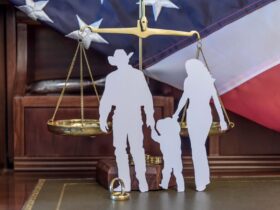Introduction
The Bumble lawsuit is about claims that Bumble broke privacy laws by handling users’ biometric data in the wrong way. This lawsuit focuses on the Biometric Information Privacy Act (BIPA) in Illinois, which has strict rules about how companies collect and store biometric data, like facial scans from photos. Bumble is accused of collecting this data without getting the proper consent, which led to this legal action under BIPA.
Background of the Lawsuit
The Bumble lawsuit known as Howell v. Bumble Trading L.L.C. began when users accused Bumble and Badoo apps of breaking Illinois’ Biometric Information Privacy Act (BIPA). The lawsuit was started because these apps allegedly collected biometric data, like facial geometry from user photos, without getting proper consent. Under BIPA, companies must follow strict rules when handling biometric data, but Bumble and Badoo were accused of ignoring these requirements, leading to the legal action.
Details of the Allegations
The Bumble lawsuit includes serious allegations against Bumble and Badoo. The key claim is that these apps unlawfully collected and stored users’ biometric data, such as facial geometry scans, without obtaining the proper consent required under Illinois’ Biometric Information Privacy Act (BIPA). The lawsuit argues that this practice violated users’ privacy rights.
In response, Bumble defended itself by stating that the optional photo verification feature, which was used to collect this data, was not specifically targeted at Illinois residents. Bumble argued that the feature was part of a global service accessible by users everywhere, not just in Illinois. Despite this defense, the allegations have led to significant legal challenges for the company.
Settlement Overview
The Bumble lawsuit resulted in a $40 million settlement. This settlement will be used to cover payments to class members who were affected, attorney fees, and other related costs. Those who qualify and submit valid claims will receive a share of the settlement fund. The exact amount each person receives will depend on the number of valid claims filed.
As for the timeline, class members must file their claims by September 20, 2024. The final approval hearing for the settlement is scheduled for October 23, 2024. After this hearing and any appeals, payments will be distributed to the eligible class members.
Who is Eligible?
To be eligible for the Bumble lawsuit settlement, you must have been a Bumble or Badoo user in Illinois between November 1, 2016, and December 31, 2021. This means that during this period, you must have used one of these apps while residing or being located in Illinois.
To file a claim, you need to provide certain proofs, such as your app usernames, the emails associated with your accounts, and the phone numbers linked to those accounts. This information is necessary to verify your eligibility for the settlement. Without this proof, your claim might not be accepted.
How to File a Claim
Filing a claim for the Bumble lawsuit settlement is straightforward. Here’s a step-by-step guide:
- Visit the Settlement Website: Access the official settlement website where the claim form is provided.
- Complete the Claim Form: Fill out the required details, including your full legal name, Bumble or Badoo usernames, emails linked to your accounts, and phone numbers associated with those accounts. Double-check that all information is accurate.
- Select Payment Method: Choose how you want to receive your payment—options typically include PayPal, Venmo, or a physical check.
- Submit Your Claim: You can submit the form online directly through the website. Alternatively, you may choose to print the form and mail it to the provided address.
- Final Deadline: Ensure that your claim is submitted by the September 20, 2024 deadline. Claims submitted after this date will not be processed.
Legal Implications
The Bumble lawsuit has significant legal implications, especially concerning the enforcement of biometric privacy laws like the Biometric Information Privacy Act (BIPA). This case highlights the importance of strict compliance with BIPA, which mandates that companies obtain proper consent before collecting and storing biometric data such as facial scans. The lawsuit reinforces that companies operating in Illinois must adhere to these regulations or face legal consequences.
This case is part of a broader trend where companies are increasingly being held accountable for their handling of biometric data. Previous cases, such as those involving other tech companies like Facebook and Google, have set precedents that influenced the Bumble lawsuit. These earlier decisions underscored the legal responsibilities that companies have under BIPA and similar laws, driving home the point that non-compliance can lead to costly settlements and damage to a company’s reputation.
Non-Monetary Relief
As part of the Bumble lawsuit settlement, Bumble and Badoo have agreed to several non-monetary terms that are significant. One of the key aspects is that they will delete all biometric data previously collected from users. This includes facial geometry scans taken from photos uploaded by users. Additionally, Bumble and Badoo have committed to ensuring that they comply fully with the Biometric Information Privacy Act (BIPA) in the future. This means they will follow strict guidelines for obtaining consent before collecting any biometric data and will implement measures to protect this data, ensuring that similar issues do not arise again.
Conclusion
The Bumble lawsuit is a significant case that sets a strong precedent for how companies must handle biometric data. It underscores the importance of compliance with privacy laws like the Biometric Information Privacy Act (BIPA) and demonstrates the serious legal consequences of failing to obtain proper consent before collecting biometric information. This case highlights the growing legal scrutiny on how companies manage sensitive data, pushing others in the industry to follow stricter standards.
FAQs
Q. Who can participate in the Bumble lawsuit settlement?
Anyone who used Bumble or Badoo in Illinois between November 1, 2016, and December 31, 2021, is eligible to participate in the settlement. You must provide proof of your app usage, such as usernames, emails, and phone numbers associated with your accounts.
Q. What is BIPA, and why is it important in this case?
The Biometric Information Privacy Act (BIPA) is an Illinois law that regulates how companies collect and store biometric data, such as facial scans. The Bumble lawsuit alleges that Bumble and Badoo violated BIPA by collecting biometric data without proper consent.
Q. How do I file a claim for the settlement?
You can file a claim online or by mail. You’ll need to provide your full legal name, Bumble or Badoo usernames, associated emails, and phone numbers. The deadline for submitting a claim is September 20, 2024.
Q. What will I receive if my claim is approved?
If your claim is approved, you’ll receive a share of the $40 million settlement fund. The exact amount will depend on the number of valid claims submitted.
Q. What non-monetary actions are Bumble and Badoo taking as part of the settlement?
As part of the settlement, Bumble and Badoo have agreed to delete all previously collected biometric data and to ensure future compliance with BIPA, meaning they will follow strict guidelines for collecting and storing biometric data.
Q. When will the settlement be finalized?
The final approval hearing for the settlement is scheduled for October 23, 2024. Payments will be made after the court grants final approval and any appeals are resolved.
Dive into the world of Law with Easy Injury Claims. Visit our website to uncover endless inspiration!












Got a Questions?
Find us on Socials or Contact us and we’ll get back to you as soon as possible.